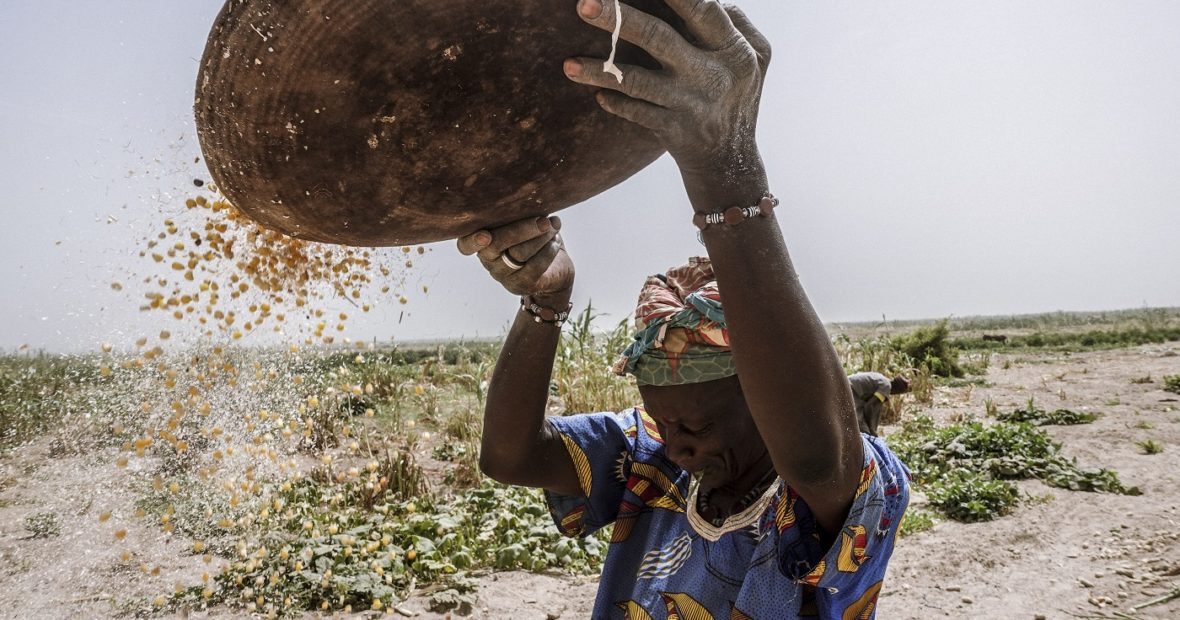Geneva (ICRC) – Hundreds of millions of people are at risk of severe hunger in the coming months as extreme poverty, inequality and food insecurity rise, particularly in parts of Africa and the Middle East, following shocks in the food, energy and finance systems.
NEWS RELEASE 12 JULY 2022
UKRAINE SOMALIA RUSSIA YEMEN SYRIA SAHEL SOUTH SUDAN NIGER AFGHANISTAN KAZAKHSTAN SUDAN
The conflict in Ukraine has contributed to a sharp increase in fuel, fertilizer and food prices, squeezing household budgets and forcing families to make impossible choices every day. Despite repeated calls from humanitarian actors, there is still no large-scale solution to alleviate the pressure the conflict in Ukraine is creating on populations highly dependent on grain exports from Russia and Ukraine. “We face an urgent and rapidly deteriorating global food security situation, especially in parts of Africa and the Middle East. Armed conflict, political instability, climate shocks and the secondary impacts of the COVID-19 pandemic have weakened capacities to withstand and recover from shocks. The knock-on-effects of the armed conflict in Ukraine have made an already critical situation even worse,” said Robert Mardini, the director-general of the International Committee of the Red Cross (ICRC).
The situation is urgent, and the window of time left to act is narrowing. Without concerted and collaborative efforts, this risks becoming an irreversible humanitarian crisis with an unimaginable human cost.
Nowhere are the consequences felt more than in countries already facing humanitarian crises and torn apart by decades of warfare or instability – including those where the ICRC has some of its largest operations, such as Syria, Yemen, Mali, Ethiopia, Somalia and Afghanistan.
Sadly, we can expect to see more images of underfed children in the coming weeks, as childrenare disproportionately affected by food crises. In Somalia, for example, the number of children under the age of five suffering from Severe Acute Malnutrition with medical complications admitted to ICRC-run Stabilization Centers has increased by almost 50% compared to the same period last year. Rising food prices push many families to take their children out of school as they can no longer afford the fees.
Cereal prices in Africa have surged because of the slump in exports from Ukraine, sharpening the impact of conflict and climate change. Russia and Ukraine together constitute 25% of the world production of wheat and grains, while around 85% of Africa’s wheat supplies are imported. Somalia, for example, gets more than 90 percent of its wheat from Russia and Ukraine.
The spike in global prices has a disproportionate impact on the most vulnerable to shocks, especially subsistence farmers and people in conflict-affected areas, where social protection is weak. These same communities have seen millions of heads of livestock die this year from drought. In Yemen, after years of civil war, more than 50%of the population – more than 16 million people – is acutely food insecure.
Food insecurity is a complex challenge, but there are meaningful steps that can be taken. The ICRC has three main calls to action:
_ First, in conflict, parties to the fighting have the primary responsibility to ensure the basic needs of civilians in areas under their control are met. They must protect crops, livestock, water structures and health facilities indispensable to the survival of the population. This includes facilitating rapid and unimpeded humanitarian access.
_ Second, funding to address the food crisis must be increased immediately to save lives. However, longer-term action to manage risks and strengthen resilience is also critical to prepare for the next crisis. We must ensure assistance reaches those affected by conflict and support climate-smart agriculture and pastoralist practices
_ Third, meeting the scale of needs in the short-, medium- and long-term calls for leveraging the capacities of all actors, including humanitarian and development agencies, financial institutions, and local and regional authorities.
The generosity from donors and partners of the ICRC concerning Ukraine has been extremely welcome. Worryingly, we are seeing an overall decline in funding to cover our global budget. Important areas of our work around the globe are currently severely underfunded, threatening our ability to help those suffering the effects of conflict and violence, including food assistance programs.
We remind states that sanctions imposed in the context of conflict can have a negative impact on the ability of humanitarian actors to operate. We urge states to secure effective humanitarian carve-outs in the design and implementation of such sanctions.
“We remain committed, with our partners from the Red Cross and Red Crescent Movement to respond to these emergencies, but humanitarians alone are not able to address them. We – the global community — need to collectively redouble our efforts through tailored action. The onus is on all of us. Too many lives, and too much suffering, is at stake,” said Mr. Mardini.
Facts about the food crisis that has the ICRC worried:
- An estimated 346 million people in Africa are facing severe food insecurity, according to FAO. Those are staggering numbers, which mean that a quarter of the continent’s population does not have enough to eat.
- Nearly 10 million people in Sudan and 7 million people in South Sudan are highly food insecure.
- Even before the escalation of the armed conflict in Ukraine, 90% of the Syrian population lived in poverty, two-thirds were dependent on humanitarian aid, and 55% were food insecure.
- Countries in the Sahel are seeing one of the most severe droughts in decades. Niger and Mauritania have produced 40% less food than the five-year average.
- In Afghanistan, the price for wheat flour is up 68% over compared with a year ago, while cooking oil is up 55%. DAP fertilizer is up 107% and the price of diesel is up 93%. Afghanistan gets its largest percentage of wheat imports from neighboring Kazakhstan, which has imposed export restrictions due to the conflict in Ukraine.
- The World Food Programme estimates that an additional 47 million people will be food insecure in 2022, with as many as 828 million people facing hunger globally.



Comments